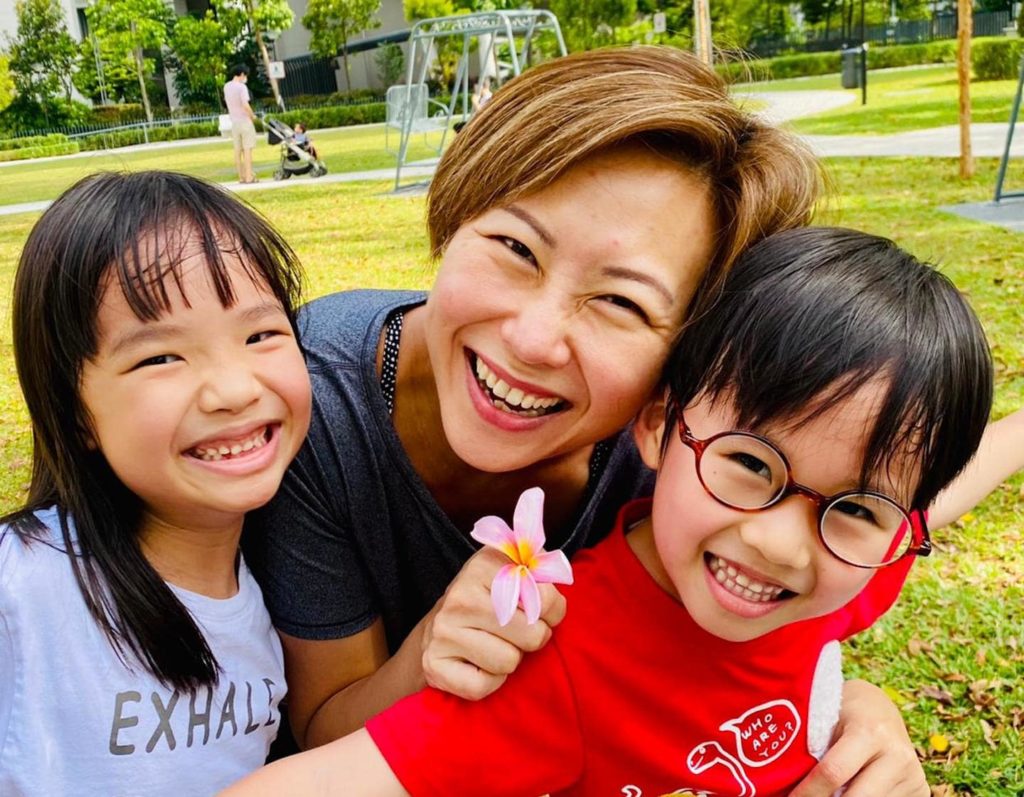
“I read that the first six years of children’s lives are critical to their cognitive development. With that in mind, I’m starting them early to make the best of this ‘sponge’ period”
Every year, Facebook parenting forums buzz with questions, advice and commentary surrounding the Primary School Leaving Examinations (PSLE). “What supplements are your kids eating? Which tuition centres are the best? How many assessment books have your kids completed so far?” It’s not surprising that parents in Singapore begin planning their child’s education path early on, sometimes even before they’re born. Singaporean mama-of-two Marilyn Wong shares what it’s like to be an unapologetic tiger mom, and how she’s really just making sure her kids learn best during the vital early years!
The PSLE frenzy
PSLE is a four-letter acronym that many parents in Singapore dread. Like it or not, every parent has to go through it. Many believe that the parents only start to worry about PSLE during the exam year. Some parents take time off near the exam period to help their kids with revision or to prepare all manners of nutrition, hoping to boost their brainpower or, at the very least, be physically present as their child’s cheerleader and provide support when needed.
Read More: PSLE Advice from Mamas Who’ve Been There, Done That
The fact is, the process starts way earlier for many parents, with getting their kids into a preferred nursery or kindergarten offering what one hopes to be a more holistic early education. Not satisfied with the regular curriculum, many of us will also spare no effort (and expense) to send young ones to different enrichment classes, hoping to expose them to academic, sports and arts stimuli. Some kids who display potential in areas such as swimming may even be talent-spotted at an early age and groomed for competition, which will help them secure a place in a preferred secondary school via Direct School Admission (DSA) in Primary 6.
A year or two before primary school enrolment is another period that we can see parents making significant changes to their lives. This includes hunting for a home within 1km of their preferred primary school, signing up as a parent volunteer (ever heard of the university professor volunteering in the school garden?) or contributing at the grassroots community level, all to stack the odds in their favour for the admission exercise. And why all the fuss, you ask? Many parents simply believe that there are schools with better teaching staff, culture and resources to help their children improve their probability of doing well in the PSLE. The competition gets incredibly stiff for those primary schools in this hallowed group affiliated with a secondary school.
So the PSLE journey starts when the kids turn three.
Read More: Guide to Enrichment in SG
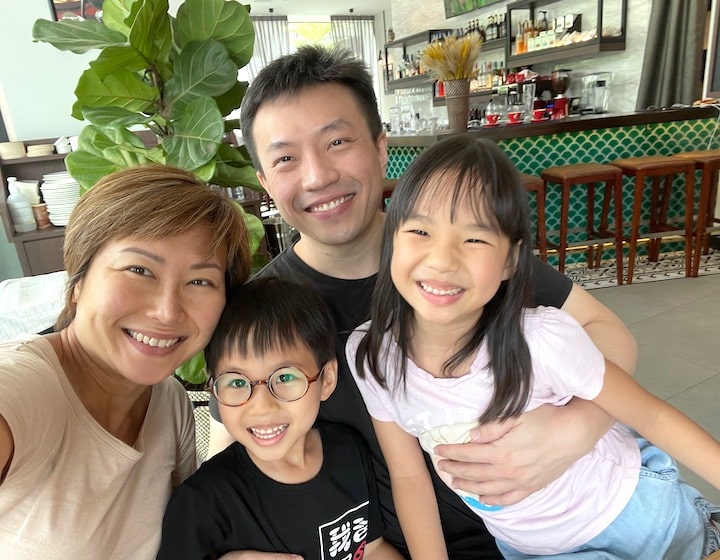
As for me…
I have three kids at home – my five-year-old son, eight-year-old daughter, and forty-two-year-old husband. Let us focus on the younger ones.
My daughter has always been a keen learner. She approaches the world with fascination, and the opportunity to learn something new always excites her. I mean, sheer joy when she gets a new book or worksheet. This may have something to do with her dad once helping her visualise the learning process by describing new connections being formed in her brain as the synapses fire away whenever she is engaged in learning something new and practising deliberately.
My son is more laidback and does not respond well to rote learning methods. He is, however, a tremendously curious kid, and I try my best to interest him in more creative ways of learning. We once had an epic battle between Ultraman and Godzilla while trying to teach him that the number 80 comes after 79 and not seventy-ten.
Thankfully, both of them turned out to be pretty quick learners, so my primary concern is to ensure that we are doing the best we can to help them maximise their innate potential. This can be an irrational feeling, but as their mum, I don’t want to regret that we could have done better for them. I also believe that they should enjoy the process, and it is this joy of learning that will keep them going in the long run.
A wall of worries…
Among other things, I worry about whether the primary school that we picked will be suitable for them and whether they can handle the stress that comes with exam preparation. These days, I try to focus on what I can control. By nature, I am a planner, so I’ll admit I am one of those parents who started ‘planning’ for them way ahead. I try to leave as little to chance as possible. There are good days when I feel like things are going well, but there are days when the worries come in waves. I can sense myself getting agitated, and I worry about inadvertently transferring the stress onto my kids. This is when I take to my yoga mat and let the worries melt away.
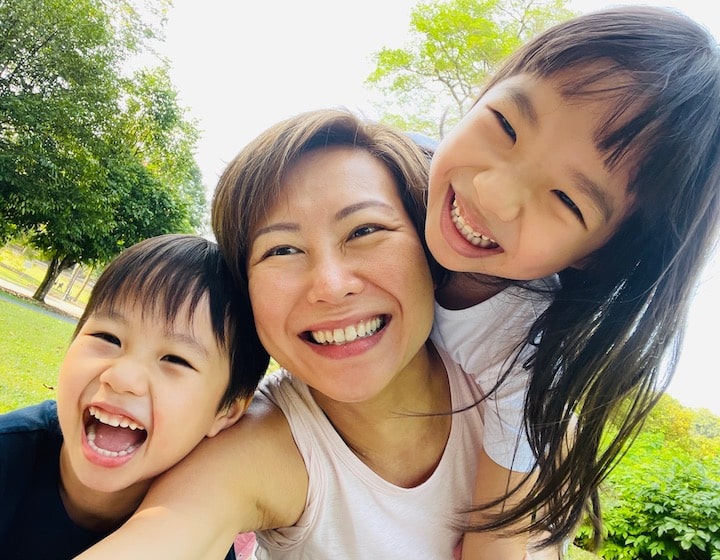
Study hard, play hard
I have exposed them to different learning methods since young, some more conventional while others may be more experiential, which usually happens outdoors at the gardens, parks, markets and playgrounds.
Their daily schedules are pretty packed, as they usually have enrichment classes in the afternoons after school. We typically spend free time during weekday afternoons going through what they covered in the classes or trying some higher-level quizzes and puzzles to jolt their minds out of routines. Then it is usually off to the playground in the evenings before dinner. Sundays are their designated rest days when the kids are free to plan and do anything they wish so long as there’s no school or enrichment work. They have come to love their Sundays, spending time in their make-believe world with talking toys and secret adventures.
I enjoy spending time with the children in my life as a stay-home mum. I am fortunate that my husband is supportive enough for this to be possible. I left my job when my daughter was about 14 months old to devote my time and energy to nurturing her.
Exposing them to various facets of learning
I read somewhere that the first six years of children’s lives are critical to their cognitive development. It is the time that they absorb information like a sponge. With that in mind, I was consciously exposing them to different teaching methods and ideas to make the best of this ‘sponge’ period. Since young, they have attended various programmes for gross motor skills, social development, speech and drama, right brain development, abacus and mental arithmetic, higher-order thinking mathematics, music, dance, language and swimming.
I only wish for these to help trigger their interests in different areas so that they can continue their love of learning.
Do you have a story to share about your experience of the PSLE (or any parenting story!)? Write in to us at [email protected]!
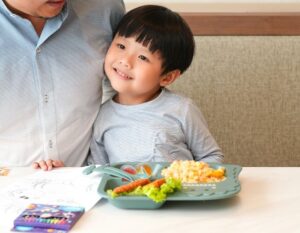





 View All
View All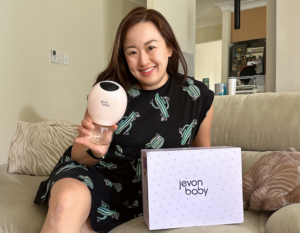



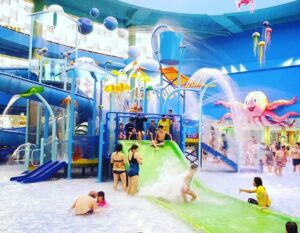
 View All
View All


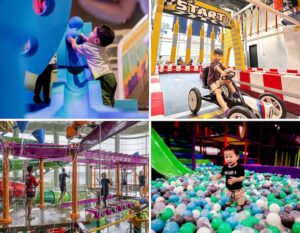





 View All
View All






